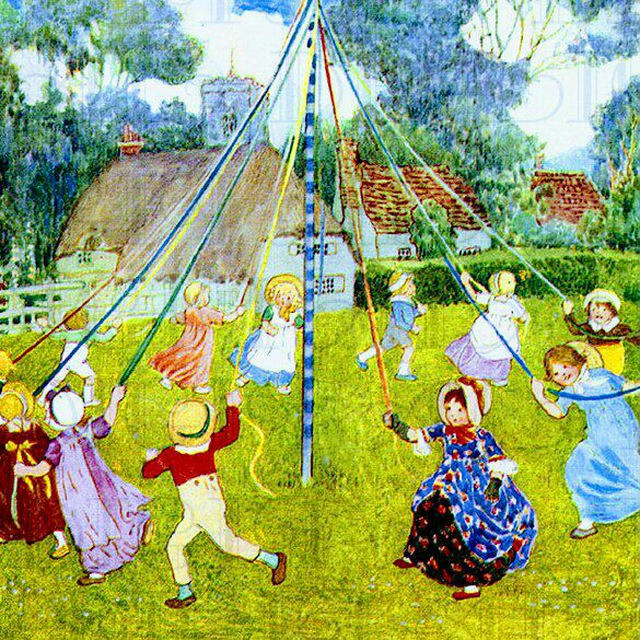
Folk Wisdom & Ways
A channel sharing wisdom, lore and more.🌲Focusing on Northern European animistic polytheism and folk ways.
Більше2 628Підписники
+124 години
+207 днів
+11930 днів
- Підписники
- Перегляди допису
- ER - коефіцієнт залучення
Триває завантаження даних...
Приріст підписників
Триває завантаження даних...
Repost from Germanic Chivalry
Just like with the legends of the Goths and Swiss, the Lombard migration is strikingly similiar to the migrations of other Germanics.
This further shows that we Germanics are one family that simply moved out from our homeland into various parts of the world, like when the children becomes adults and moves out to get a place of their own.
Genetic studies of Lombard remains also confirms the Lombards being Scandinavian and also homogenous.
Wir sind Ein Volk
We are One Folk
Vi är Ett Folk
Wij zijn Één Volk
Við erum Eitt Fólk
❤ 5👍 3
Repost from Germanic Chivalry
ᚠ Lombards(Longbeards) were a Germanic tribe that originated from Scandinavia. We know that they lived in Denmark and Northern Germany until they would migrate south during the Migration Period, when the winters grew colder and widespread famine became common throughout Scandinavia.
The Lombards would become known for their successful invasion of the Roman Empire and conquering Italy, forming the Lombard Kingdom of Italy. Their reign would become loved by both it’s Germanic but also it’s Roman inhabitants. Even today the mark of the Lombards can be noticed in Italy, specifically in Northern Italy where one of their northern regions(Lombardy) is named after the Lombards as well as Germanic DNA and Germanic features being alot more frequent in Northern Italy.
They are also credited for the early development of the artstyle that would combine both Germanic and Roman artstyles, ”Romanesque”. Which in turn would evolve into Gothic, which is one of the most famous, loved and iconic artstyles of Europe.
Repost from Æhtemen
The Nine Herbs from the Nine Herb Charm (ink drawing by myself).
Una / mucgwyrt - Mugwort
Waybread / wegbrade - Plantain
Stune, suggestions vary between lamb’s cress (or hairy bittercress) / shepherds purse / water cress
Atterlothe / attorlaðe - Betony (some say Nightshade)
Maythe / mægðe – Mayweed
Wergulu – is German for Nettle but sometimes translated as Crab Apple
Stiðe – Nettle
Fille - Chervil (some say Wild thyme)
Finule - Fennel (English wild fennel - not bulb fennel)
❤ 1
Repost from 🌲 𝕾𝖔𝖓𝖓𝖊𝖓𝖗𝖎𝖙𝖙𝖊𝖗 🌲
“What are men but hungry wolves, a prowling on the heath?
If in a pack of wolves you hunt, you'd better sharp your teeth.”
— Ragnar Redbeard
❤ 4👍 1
"Eigener Herd ist Goldes wert" - German proverb
The English meaning is close to 'there is no place like home'. Literal translation is 'your own hearth is worth gold'.
@EuropeanTribalism
❤ 4
Repost from The Chad Pastoralist: History
What's the deal with patrilineality in ancient Europe, and how can we see it in the archaelogical record?
Patrilineality is a kinship system whereby an individual's family membership derives from the father's direct paternal lineage. A bit like today where you have your dad's last name!
Well, we can tell that our ancestors were patrilineal by their burials and DNA. One of the most exemplary examples of this comes from Neolithic Ireland, with the Newgrange megalithic tomb. The man buried inside belonged to Y-DNA lineage I2a, a Western Hunter-Gatherer lineage.
Despite the Newgrange elite's overall autosomal ancestry being inherited from Anatolian Farmers and roughly a quarter from the Western Hunter-Gatherers, his phenotypic traits (specifically his complexion) resembled that of his hunter-gatherer ancestors due to him being the result of an incestuous relationship as a means of preserving this archaic trait.
We see this in Neolithic Denmark as well, with sample NEO792 from the Allentoft paper (https://www.nature.com/articles/s41586-023-06862-3) being 85% Western Steppe Herder in overall ancestry but his Y-DNA lineage was I2a-S2703. A Funnelbeaker Early European Farmer subclade of Western Hunter-Gatherer origin.
NEO792 was buried in a megalithic tomb, not a burial mound, and carried mt-DNA U2e2a1, a Western Steppe Herder derived female lineage. This means that despite NEO792 indirectly inheriting the majority of his overall ancestry from Western Steppe Herders, he was likely aware of his direct paternal heritage going back to his Funnelbeaker farmer male ancestors, and was given a special megalithic tomb in the same way.
This would be like a guy today who is 85% French and 15% Danish with a Danish male line, specifically choosing to be buried with a Danish burial rite and having a Danish identity and culture. Fascinating, isn't it? As more work is done to uncover the archaelogical history of ancient Europe, it is becoming increasingly more complex (See more on this here: https://t.me/thechadpastoralist/2610)
